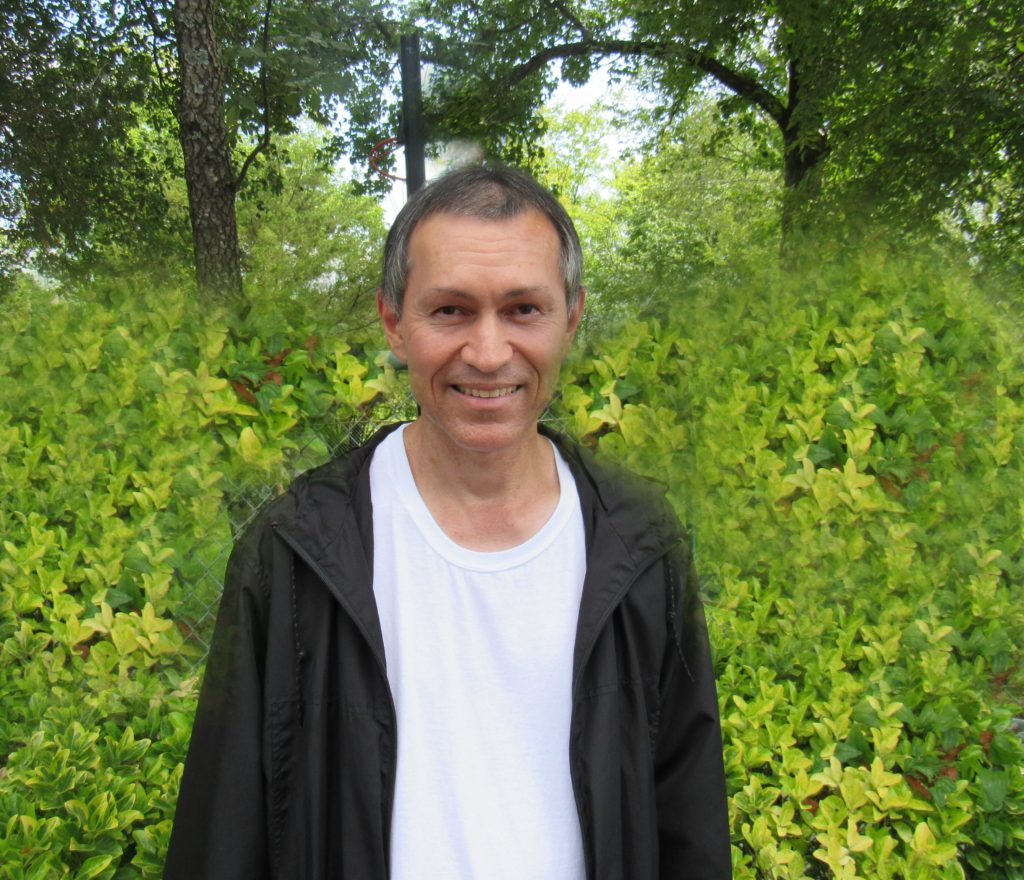Ms. Mark Finney, an Army Veteran currently housed at St. Francis House under the VA Homeless Veterans Program, served her country from 2007-20011. She was a part of the transportation corps and was deployed twice to Afghanistan. Her unit was attached to an infantry unit and provided fuel operations for air and land vehicles. “We were definitely a target. We were uneasy any time we went out. Believe me I said my prayers before every mission and I’m just grateful to have come back basically unhurt.”

Ms. Finney came to America from Guam with her parents as a young child and while they moved around, eventually the family ended up in Fayetteville. “I come from a military family. My dad was Navy, and out of five brothers, my oldest brother was killed in Viet Nam and another retired from the service. He passed away from cancer in ‘96. “
“I enlisted after my parents passed away. I really needed some grounding and the Army helped with that.” After she left the service, she relocated back to Fayetteville “as a civilian”. “I worked lots of jobs from factory to retail. I left my last job because of a really bad work environment. That was probably a mistake; I think now if you have something secure you should probably stay with it. But I didn’t. I worked for a temp agency off and on, and the placement I was at was talking about offering me a permanent job when out of the blue I get a phone call saying there’s no work. I eventually lost my apartment, my car, everything. When I called the VA in Fayetteville, they were full and transferred me here. “
“I’m truly grateful to have ended up here. There is so much more support, lots of programs to address whatever is going on, social workers, lots of people who can facilitate you getting on your feet.”
And Ms. Finney is using all those resources. She is looking into vouchers and income-based housing, doing the paperwork to enroll in Pulaski Tech for a certificate in business and working with a therapist at Fort Root.
“My faith was challenged when I was in Fayetteville and lost everything. I thought I had been abandoned, but instead, it seems like a rebirth was being planned. “
For Ms. Finney, that rebirth includes rethinking her gender. “I’m still in the early stages of becoming the type of person I want to be. I’ve always seemed more like a woman. People even seemed to treat me more like a woman. Growing up, I always tried to fit into the typical male stereotype, to be like my dad and brothers, and I definitely tried to butch it up in the Army. That wasn’t me. It was more like a persona I put on. That feeling is a part of my dysphoria. I tried to run away from it, but I can’t hide the truth. “
Perhaps many would consider that the main piece of Ms. Finney’s story, but for Ms. Finney, it is simply one more part of a journey that is spiritual at its root, the journey to be the person God wants her to be in all aspects of her life. Ms. Finney closes in her own words: “It just seems that Little Rock cares. So I want to express my sincere thanks and appreciation to those who dare to care and show that care; to those who have the means and care enough for their fellow brothers and sisters to help. You give hope and show God’s presence, and that is very much needed. Always know that the good you do is not in vain.”